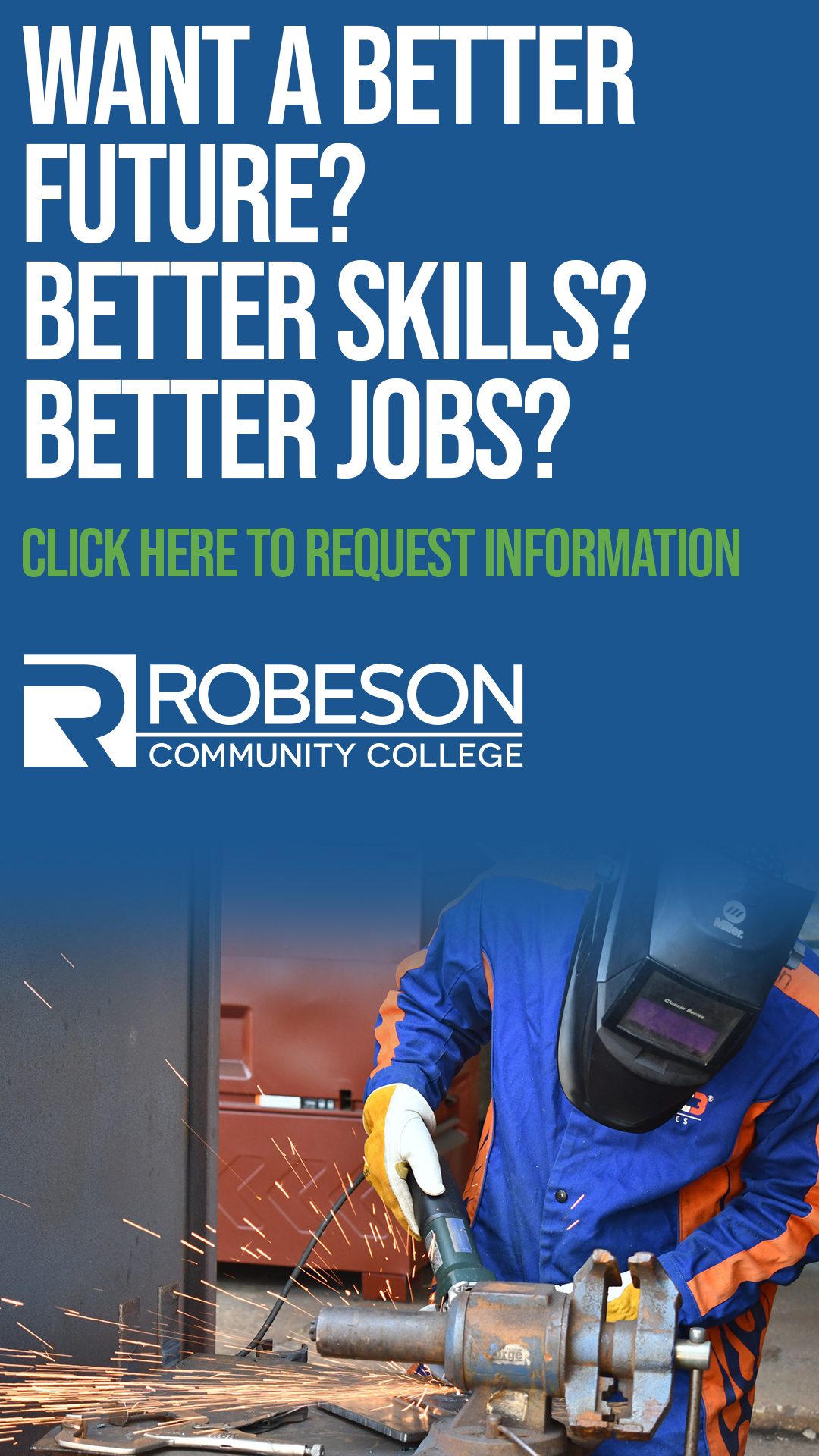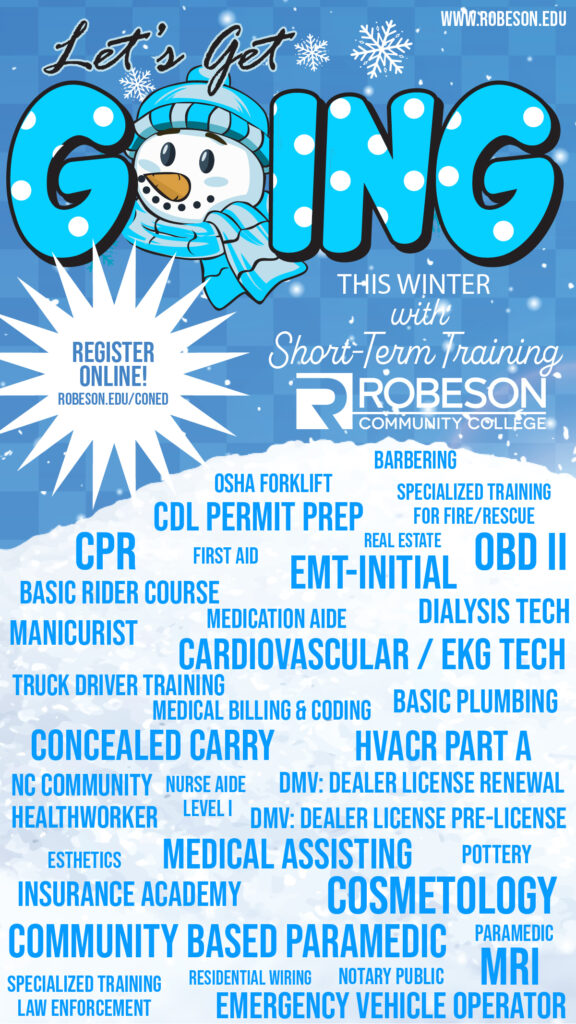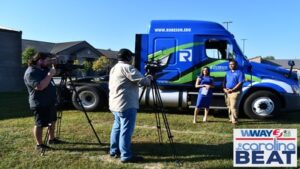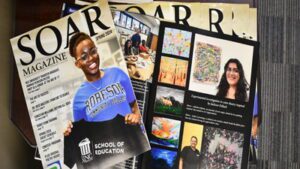History
The community college movement expanded into Robeson County with the establishment of an extension unit of a nearby technical institute in 1965. The unit was established at the Barker Ten-Mile Elementary School seven miles north of Lumberton. Twenty full-time curriculum students enrolled the first year.
When the College became independent of Fayetteville Technical Institute three years later, it was named Robeson Technical Institute, and a local Board of Trustees comprised of eight members was appointed. Two more name changes have taken place since that time to its present name of Robeson Community College. However, the College remains committed to serving all sectors of the county with vocational, technical, college transfer, and continuing education programs.
Three building phases beginning in 1972 and finishing in 1988 made the RCC Campus a 188,662 square-foot facility, which now houses over $2 million in equipment and 21 curriculum programs, along with a variety of continuing education programs. In the summer of 1995, the construction of the Emergency Services Training Center began. This center is located southeast of Lumberton Highway 72 at the Carolina Power and Light Weatherspoon Power Plant. Dedication for the facility was held on April 13, 1997. It supports the disciplines of law enforcement, rescue, and firefighting. It is a state-of-the-art facility which allows the College to expand its training opportunities and provide the highest level of quality in each of the courses taught in these occupations.
Robeson Community College’s 30th year was a monumental one. During 1995-96, the College celebrated its Diamond Anniversary and the many partnerships throughout the county and state which have contributed to its success. The College Transfer program replaced the General Education program in curriculum in 1997, opening up many more educational opportunities for RCC students who choose to further their education through one of the state’s universities.
In 2004, the College completed its Continuing Education facility at COMtech. This 18,000 square foot facility houses various continuing education programs including Adult High School, Adult Basic Education, Compensatory Education, occupational extension, and business and industry training courses.
In 2005, renovations were completed to Building 9 on the College’s main campus. State-of-the-art labs were completed to support the College’s Electrical/Electronics Program as well as upgrades to various parts of the building. A new bookstore was completed and is located in the renovated facility.
In the spring of 2006, a new state-of-the-art Health Science Building was completed. This 39,013 square foot facility houses the College’s Allied Health programs and medical programs operated through the College’s Continuing Education division. With the addition of this facility, this brings the College’s total facility square footage at its main campus to 227,665.
Commitment of RCC to its students and the citizenry of Robeson County was seen with the excellent reports of various auditing agencies in the state. There are currently 189 carefully selected full-time RCC employees who now serve RCC, which represents a figure of almost 30 times as many as when the College first opened its doors in 1965 with six full-time employees. Another 292 part-time personnel teach and provide services to the student body on an annual basis.












